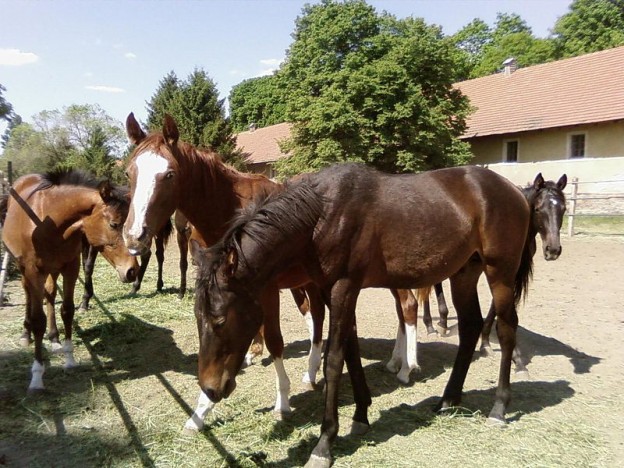Maryland agriculture officials reported this week that a horse from Pennsylvania that appeared in a Maryland horse show on March 15 has tested positive for the equine herpes virus (EHV).

Public domain image/Dusan Bicanski
Officials say that none of the horses that were in the Maryland show and none of the horses that live with the sick horse in Pennsylvania are currently exhibiting any signs of illness.
The horse that is sick did not exhibit any symptoms until March 22 and did not exhibit any signs of illness while in Maryland. The officials of the Maryland show have contacted all trainers of horses in the division that the sick horse was shown in to alert them of the risk and recommend they monitor their horses through April 5, which is the end of the 21 day incubation period for equine herpes.
One horse that was reported to the Maryland Department of Agriculture (MDA) with a fever on March 29 tested negative for EHV.
Equine Herpes Virus is highly contagious among horses. Llamas and alpacas are occasionally affected but the virus poses no health threat to humans. Symptoms frequently associated with EHV infection in horses include a fever (>101.5 F), incoordination, hind-end weakness, lethargy, incontinence and diminished tail tone.
The virus is easily spread by airborne transmission, horse to horse contact and through contact with nasal secretions on equipment, tack, feed and other surfaces.
People can spread the virus to horses by means of contaminated hands, clothing, shoes and vehicles. Currently, there is no equine vaccine to protect against the neurological strain of the EHV virus.

